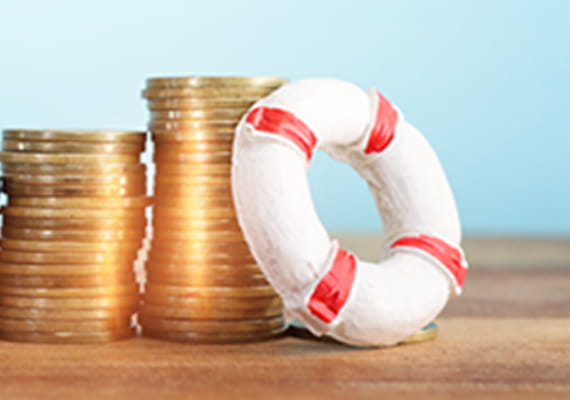
Considerations for Dipping into Your Emergency Fund
One of the keys to long-term financial success is organizing your spending through a pre-determined budget. And one of the most important components of a household budget is your emergency fund. The rule of thumb is to set aside $1,000 for unforeseen expenses, then adding to that amount monthly until it can cover 3-6 months of living expenses.
The emergency fund is intended to pay for things like unexpected home repairs, an unanticipated rent increase, or living expenses following an interruption in expected income.
But having a sizeable chunk of cash sitting in your checking account can be a source of temptation. And in order to get at it with a clear conscience, people can stretch the definition of an emergency. Financial Planner Rachel Fox has compiled a list of things that often tempt people to unwisely dip into their emergency funds.
At one end of the spectrum are the things that are obviously not emergencies—these are luxuries to be saved up for such as a new iPhone, Taylor Swift tickets, or a vacation.
Next are the items that are legitimate expenses, but because they can be predicted, they should be planned for and funded through the budget. These include car insurance, memberships, and gifts.
Finally come the expenses that are compelling, but still should not be treated as an emergency. For example, when a family member asks for financial help, compassion is always appropriate. But it's important to remember that you should not put your own family's finances in jeopardy in order to bail someone out.
Also, debt is not an emergency. Paying it off should be accomplished with long-term planning and discipline. To the extent you can prioritize, paying off debt should be done without sacrificing the assets set aside in your emergency fund.
Life is full of unexpected challenges that come with financial consequences. When the next one of these pops up, you'll be glad you saved your emergency fund for a real emergency.
1. http://go.pardot.com/e/91522/national-article259740255-html/946c1v/2141757262/h/m1ePYezCrETD8AnQeuInSczoAV9iRiLy01rxVyg1Hvc
2. http://go.pardot.com/e/91522/s-dont-use-emergency-funds-on-/946c1y/2141757262/h/m1ePYezCrETD8AnQeuInSczoAV9iRiLy01rxVyg1Hvc

Related articles

Retirement is a phase of life you've never experienced before. How you plan to spend your post-work life can give valuable insight before you make major decisions. Christine Benz, who writes about...

The temptation to acquire something now but not pay for it until later is probably as old as humanity. There's the ancient biblical story of Esau, who traded his future inheritance for a bowl of...

According to LongTermCare.gov, nearly 70% of those age 65 and over will require long-term care at some point in their lives. This includes care at home (paid and unpaid) as well as at nursing and...